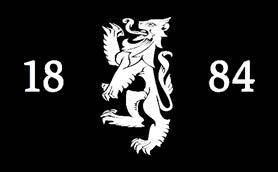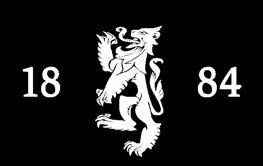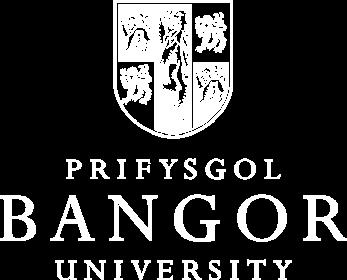Masters of Business Administration (MBA)
Illicit Finance MBA




Going Beyond.
Bangor University’s Business School is a globally leading institution for banking and financial studies, offering a full range of disciplines from undergraduate to doctoral level.
Bangor Business School offers a range of executive education programmes that combine academic rigour with practical, industry-focused content. The suite of executive MBA qualifications provides a unique opportunity for professionals seeking to enhance their expertise and knowledge in their preferred sector. It is the only institution globally to offer MBAs with accompanying professional recognition in the areas of financial crime and banking.
The dual-award degrees are designed to equip individuals with advanced knowledge of a specialist sector together with broader business acumen and confer a prestigious professional designation – the Illicit Finance MBA and the Financial Crime & Compliance MBA both award the Financial Intelligence Specialist designation, and the Chartered Banker MBA confers Chartered Banker status.
The school is renowned for its high quality and expertise, particularly in banking and financial services, where it stands as a leading European centre. Staff research papers and articles are published regularly in leading journals, and their books attract a worldwide audience.
Ranked in the world’s top 10% of institutions and economists in the field of banking, Bangor Business School holds the highest rank among UK universities (RePEc, August 2021).
In recent years, the Business School staff have conducted high-level consultancy work, including major policy studies for many leading organisations such as the European Commission, The World Bank, and the UK Treasury.
About Bangor University
Established in 1884, Bangor University combines traditional academic excellence with cutting-edge research and facilities.
Bangor was one of the first universities in the UK to offer degrees in banking and the first to offer a banking MBA. Bangor’s interest in banking dates to the famous country banker, George Rae, who in 1902 endowed a public lecture series in banking at Bangor that attracted some of the leading thinkers and practitioners of the day.
The Research Excellence Framework (REF) 2021, published in 2022, recognises that
85% of Bangor University’s research is world-leading or internationally excellent. Bangor University is ranked in the top 20 for teaching quality in the UK (The Times & The Sunday Times Good University Guide 2024) and awarded Welsh University of the year and top 50 in the UK (Daily Mail University Guide 2024).
About Manchester CF
ManchesterCF provides online financial intelligence training programmes with a global perspective to financial institutions, public-sector bodies, defence and enforcement agencies and multinational corporations. Based in Toronto, ManchesterCF works with subject-matter experts to construct effective training programmes on anti-money laundering and counter-terrorist financing. The expertise of ManchesterCF is built on solid experience in international banking, financial intelligence, and compliance.


Illicit Finance MBA (IFMBA)
Bangor Business School is the only institution globally to offer the Illicit Finance MBA – a ground-breaking qualification awarding an MBA alongside a professional designation of Financial Intelligence Specialist (FIS).
The Illicit Finance MBA combines specialisms in national security and financial intelligence with a management toolkit necessary to navigate and operate effectively within the evolving landscapes of defence and national security, at both national and global levels. This specialised programme delves into the legal, regulatory, and due diligence aspects of detecting and mitigating threats to national security, while taking a global perspective on stakeholders with criminal intent.
Delivered through distance learning on a part-time basis using proven technology, the programme integrates materials, previously only available in self-study mode, from ManchesterCF, an established provider of financial intelligence qualifications to industry practitioners worldwide.
Who would benefit from the programme?
The Illicit Finance MBA is designed to enhance career prospects for specialists in national security and defence, as well as those interested in entering this field. The programme is tailored for military, security and defence personnel, civil servants, government officials, and policymakers.
Target audiences include professionals in the Five Eyes countries (Australia, Canada, New Zealand, United Kingdom, and United States) and other similar networks (9 Eyes, 14 Eyes, etc). The programme provides a comprehensive exploration of illicit finance, focusing on key areas such as money laundering, terrorism financing, fraud, and sanctions evasion.
This advanced learning experience provides specialist subjects, including Introduction to Financial Crime, National Security Aspects of Financial Crime, Human Aspects of Financial Crime, and Institutional Perspectives of Financial Crime. It also develops management competencies through study of People & Organisational Behaviour, Managing Resources, Managing Change, and Corporate Strategy. Combined, the modules equip participants for senior positions within the sectors.
Separately, individuals interested in compliance, financial regulation, and anti-money laundering in the commercial sector may consider Bangor Business School’s Financial Crime & Compliance MBA programme as an alternative. More information is available at bangor.ac.uk/ financialcrimecompliancemba
Educational Aims
To develop an advanced comprehension of the methods of detecting and combating financial crimes associated with aspects of national security of a nation.
Fostering a thorough understanding of the managerial, professional, ethical, legal, and regulatory framework in which national security agencies operate, with a particular focus placed on mitigating terrorist and proliferation activities.
Enhancing lifelong learning skills and personal development of intellectual and study skills relevant to careers in the arena of national security and defence – whilst recognising the transferable nature of such skills.
Embedding a deep appreciation of the broad range of stakeholders (institutional and individual) impacting the security of a nation, and of the role for collaboration between agencies within a single country and across countries.
Course Structure
The Illicit Finance MBA comprises eight modules, four subject-specific modules and four broad-management-focused modules, studied over a 24-month period.
Subject-Specific Modules (30 Academic Credits)
The subject focused modules are assessed with two pieces of assessments of 5500 and 1500 words per module. By exception, the Introduction to Financial Crime & Compliance course includes a 4000 word assessment and a recorded presentation.
IFC Introduction to Financial Crime & Compliance
This module introduces the concept of money laundering, exploring its common typologies and the regulatory frameworks designed to combat it. Students will gain insights into the legal obligations and risk assessment processes that financial institutions must adhere to effectively counter money laundering activities. In this introductory module, learners are introduced to aspects of critical thinking to inform the tasks of due diligence and problem solving for financial intelligence purposes.
IPG Institutional Perspectives of Global Financial Crime
The module considers the legislative and regulatory environment that defines and seeks to control financial crime associated with inappropriate exploitation of the physical environment, and money laundering based on trade. The resulting economic sanctions that are often introduced to encourage compliance are assessed. The motivations for initial development and persistence of each crime are outlined and methods on how they may be detected are explored. Appropriate policy responses are introduced to counter and combat such crimes.
This module critically analyses aspects of terrorist and proliferation financing –specifically how cryptoassets can be part of the terrorist resourcing model by facilitating money laundering between stakeholders (terrorists and insurgents, transnational organised criminals, corrupt officials, and rogue states) in a proliferation network. Information about network components provides opportunities for detection as resources pass along proliferation pathways. Open source intelligence searches combined with traditional approaches offer detection possibilities to counter these threats to national security – this requires consideration of information relevance and reliability.
The legislation and wider legal and regulatory environment for defining, identifying, and countering criminal behaviours is discussed in the context of human trafficking, corruption, and terrorist financing. The module also considers techniques and methods of detection of these crimes and appropriate approaches to monitoring and reporting of these behaviours – from individual suspicious transactions to comprehensive law enforcement investigations.

The Management Modules (15 Academic Credits)
The four management modules are assessed by a written assignment of 2000 words with a 2-hour computer-based examination.
CS Corporate Strategy
In a globally competitive environment where the ability to manage effectively in a context of continuous change is a paramount managerial skill, an understanding of the principles and processes of corporate strategy is a crucial determinant of managerial effectiveness. By analysing strategic decision making within business, this module enables students to develop a critical understanding of the strategic process of business management. The module will also develop an understanding of the interconnections between the other functional domains within a business.
MC Managing Change: Insights from Marketing
Responding to disruptive changes in the external environment this module critically evaluates the contributions of various schools of thought in marketing. It will examine the relevant analytical models and management practices, with emphasis on the strategic importance of marketing to all organisations. Through relevant case studies and discussions, the module investigates the essential elements of effective marketing campaigns and equips students with the skills necessary to critically evaluate the various theories and apply those most relevant within their organisations.
Sample Study Structure
This module focuses on the use of scarce resources to guide decision making in uncertain environments. Firms that better manage their scarce resources (including capital, people, and data) will be better positioned to thrive in an increasingly competitive and global marketplace. To be successful, firms need to leverage every advantage they can and be guided by evidence. The module aim is to equip students with practical skills and an understanding of the concepts that underpin good managerial practice.
This module draws upon a broad overview of key issues arising from contemporary research into human resource management (HR) and organisational behaviour (OB). The module aim is to provide an integrated analysis of management, organisations, and people, developing the conceptual, strategic, and practical skills necessary for managers in complex, global organisational contexts.
The study structure will be dependent on the joining intake. See sample study structure below for each semester of study.
Semester 1 Semester 2
Introduction to Financial Crime & Compliance
Managing Change: Insights from Marketing
National Security Aspects of Financial Crime
Semester 3
Semester 4
Human Aspects of Global Financial Crime Institutional Perspectives of Global Financial Crime
Managing Resources: An Analytic Foundation People & Organisational Behaviour
Entry Requirements
Entry to an executive MBA requires a recognised undergraduate degree or possession of an approved professional qualification and practical experience. Individuals who do not have a formal degree or professional qualification, but who have several years of approved management experience will be considered.

Applicants must have a high level of fluency in the English language. Where a candidate does not converse through the medium of English in their profession or has not completed their bachelor’s degree in English, an IELTS, Pearson PTE, or Cambridge English Test may be requested. Where this is requested, the following minimum scores are required:
English
• IELTS: overall score of 6.0 (with no element below 5.5)
• Pearson PTE: a score of 56 (with no element lower than 51)
• Cambridge English Test – Advanced: 169 (with no element lower than 162)
Work Experience
Applicants should have a minimum of 2 years practical experience at a relevant level.
Accelerated Routes
Accelerated routes of study based on exempting individual modules will be considered for students from Bangor University’s own Chartered Banker MBA and for graduates of relevant master’s degrees from recognised universities.


Learning
Distance Learning
The Illicit Finance MBA is offered on a part-time basis through distance learning. This is a proven approach which over a 14-year period has graduated more than 1000 students from over 100 countries. A rich combination of resources is used through an array of platforms to enhance the educational experience. The study format minimises time away from the workplace and reduces the impact on the daily business operations, whilst facilitating application in the student’s field making the programme highly valuable and accessible to students worldwide.
Online Learning
The online learning component of the programme is delivered through a mix of recorded lectures, live tutorials, and Blackboard. Comprehensive guidance and support are available to help students navigate the various platforms utilised.
Blackboard Virtual Learning Environment (VLE)
Courses are hosted on Bangor University’s Blackboard. Each module in the programme benefits from a bespoke area within the platform where all study resources are held.

Blackboard hosts discussion forums that foster interactions between students and tutors, enabling discussions on study materials and module objectives throughout the programme. These forums are a vital part of the learning experience. Additionally, ManchesterCF provides computer exercises that allow students to test their progress in developing knowledge through multiple-choice questions (MCQs). These MCQs offer valuable opportunities for self-evaluation and reinforce comprehension of the material (they do not contribute to the module’s assessment).
Materials
Materials are available on Blackboard and include a study guide and access to Bangor’s eLibrary. In addition, subjectspecific course materials include access to ManchesterCF training material.
Private study is supported by interactive materials delivered through Blackboard, including online discussions and email contact with staff. Students are also directed to relevant literature, such as book chapters, journal articles (theoretical and empirical), books, and internet sources that they are expected to read during their private study time.
Lectures
A combination of recorded and live interactive lectures takes place at scheduled times during the semester. All sessions are recorded, offering flexibility for self-paced study.
Assessment
The Illicit Finance MBA includes a combination of four 30-credit subjectspecific modules and four 15-credit management focused modules.
The subject specific modules are assessed with two assignments of 5500 and 1500

words each. By exception, the Introduction to Financial Crime & Compliance course includes a 4000 word assessment and a recorded presentation. The four management modules are assessed through a written assignment of 2000 words and a 2-hour computer-based examination.
The designation of Financial Intelligence Specialist (FIS) awarded by ManchesterCF is bestowed on successful completion of the programme.

Application Procedure
When you choose to study and MBA programme you are making one of the most important decisions in your life.
Choosing an MBA programme is a significant decision. The right programme can equip individuals with the tools needed to unlock their future potential. In the current global climate, earning a specialist MBA from a prestigious university, along with a recognised professional qualification, stands as a powerful testament to one’s career ambitions.
Visit the website for further information including application details, admission process and fee structure www.bangor. ac.uk/executive-education
Contact the Executive Education team with any questions you may have before you get started.
+44 (0) 1248 38 38 00 executiveeducation@bangor.ac.uk www.bangor.ac.uk/executive-education


bbs-executive-education ExecutiveEducationBBS BBS_ExecEd +44 (0) 7599 65 79 33

